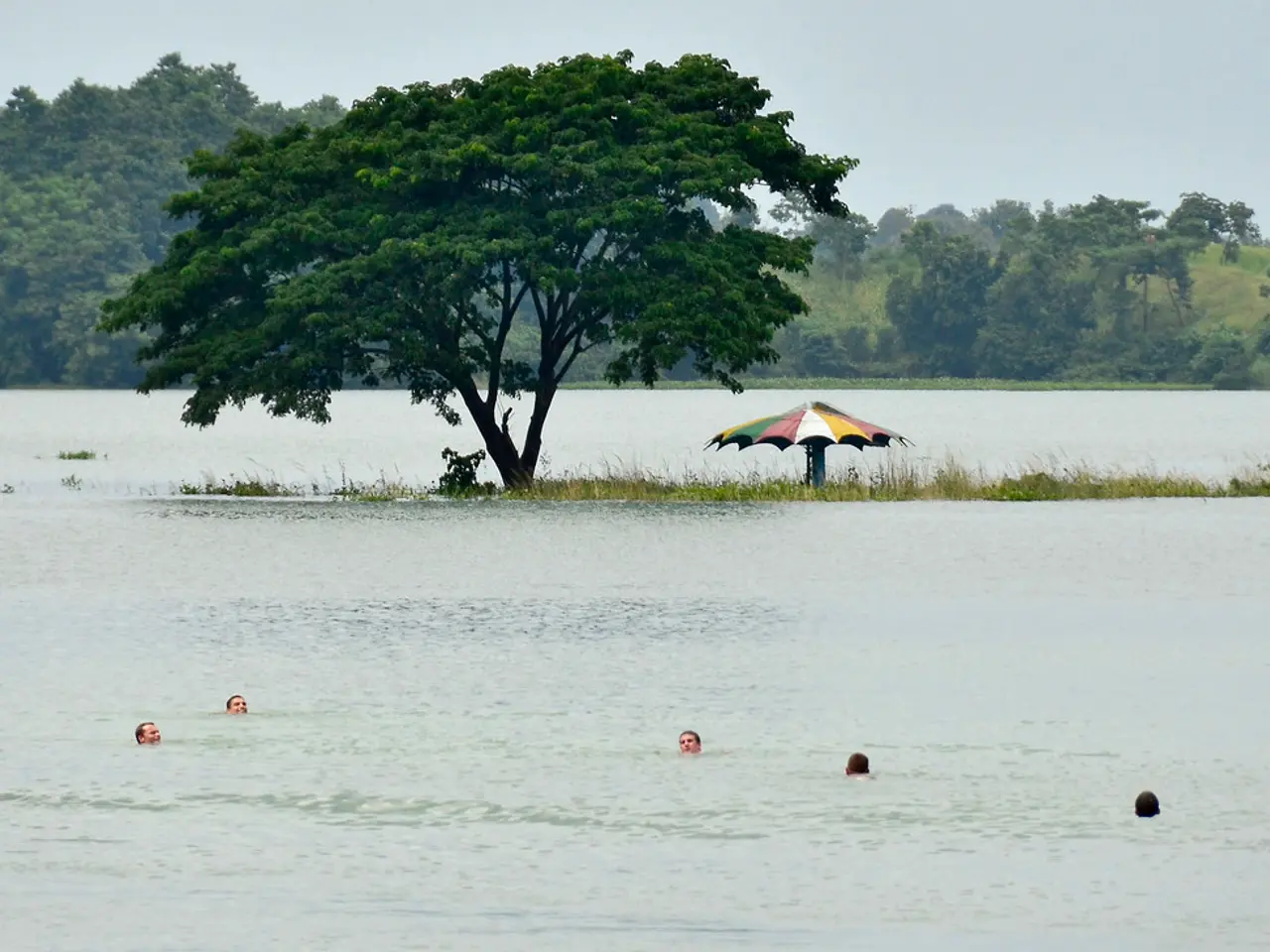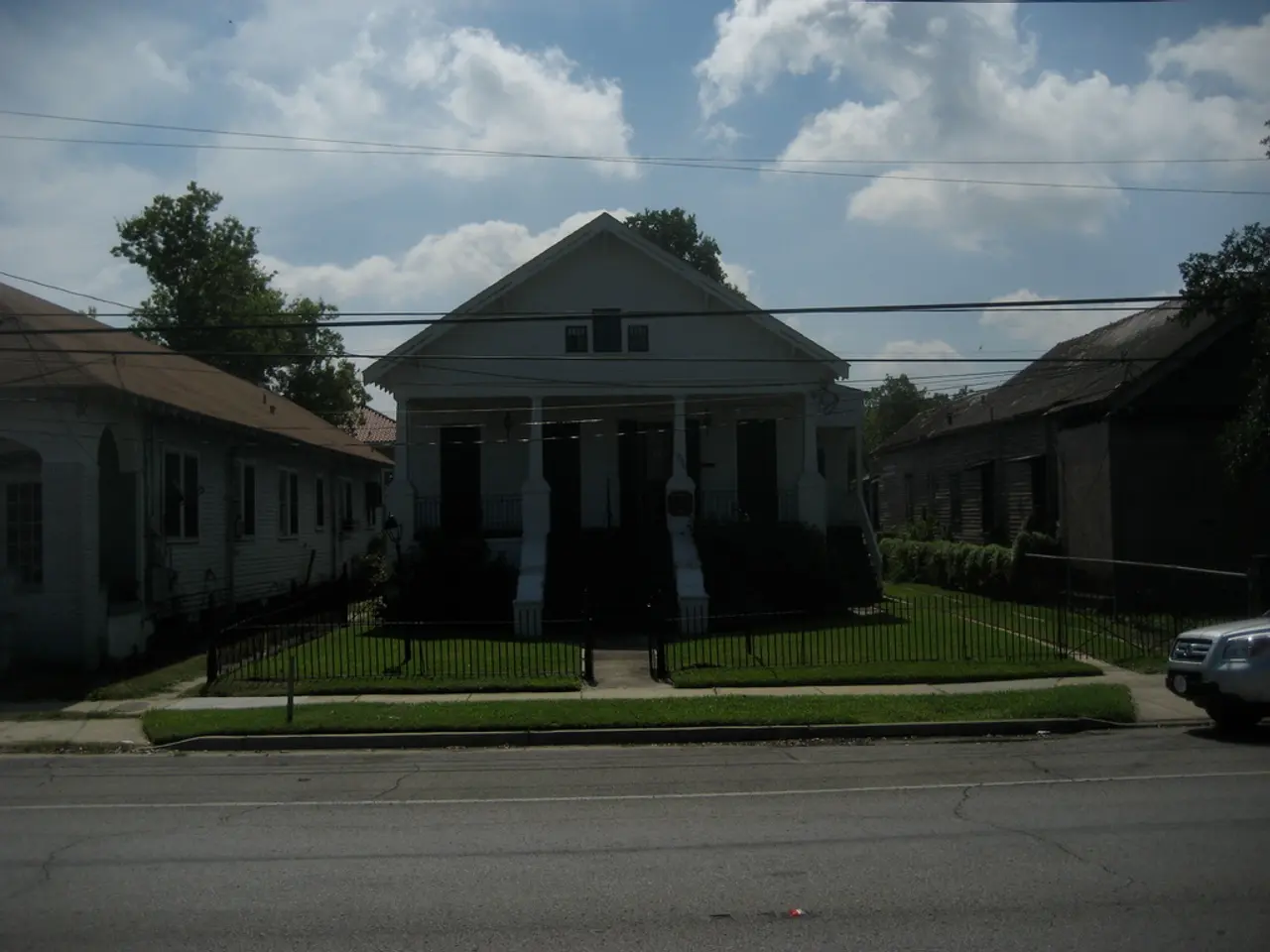Is it raining in Gelsenkirchen during July?
In the heart of northern Ruhr, the cities rely on the diligent work of two water management associations: the Emschergenossenschaft and Lippeverband. These organizations, established in 1899 and 1926 respectively, have been instrumental in managing the water resources of the region, including the Emscher and Lippe rivers and their tributaries.
Last July, the region experienced seven heavy rain events, as recorded by both the Emschergenossenschaft and Lippeverband in their catchment areas. Despite the numerous rainfall events, the precipitation balance for both the Emscher and Lippe catchment areas was below average. The Emscher catchment area saw an average of 56.3 mm of precipitation, compared to a 130-year average of 83 mm, while the Lippe catchment area recorded an average of 57.4 mm, compared to an average of 81 mm.
The Emschergenossenschaft, responsible for maintaining the Emscher, wastewater treatment and disposal, and flood protection, recorded the maximum daily total precipitation on July 21st with 34.6 mm at the Duisburg-Stockum (Old Emscher) pumping station. The Lippeverband, which has taken steps to naturally restore the Lippe river catchment area, recorded the largest daily total precipitation on July 20th in the Lippe area with 23.1 mm at the Wesel-Kasselweg pumping station.
Interestingly, only eight days in July remained completely dry, with the minimum monthly total precipitation recorded at the Dülmen-Rorup wastewater treatment plant station with 36.7 mm. The most intense rain event in the Lippe area was measured at the Dinslaken-Eppinghofen wastewater treatment plant station, with 32.2 mm in just 30 minutes.
The Seseke, a tributary of the Lippe river, has been restored by the Lippeverband, demonstrating their commitment to preserving and enhancing the region's waterways. The Emschergenossenschaft, with Ilias Abawi serving as its spokesman, continues to oversee various tasks related to the Emscher river, including wastewater treatment and disposal, and flood protection.
These water management associations, the Emschergenossenschaft and Lippeverband, remain the primary organizations responsible for Gelsenkirchen's water management, ensuring the city and its surroundings navigate through even the wettest of weather conditions.
The Emschergenossenschaft and Lippeverband, despite last July's seven heavy rain events in their catchment areas, managed to keep the precipitation balance below average, with the Emscher and Lippe river catchment areas receiving an average of 56.3 mm and 57.4 mm of precipitation respectively. These water management associations, with their ongoing efforts, ensure that Gelsenkirchen and its surroundings can navigate through even the wettest of weather conditions.








